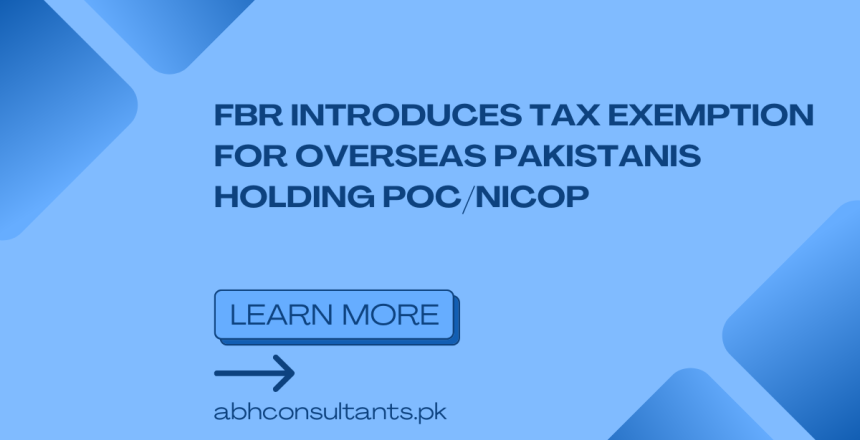New Tax Exemptions for Overseas Pakistanis: Key Updates by FBR
The Federal Board of Revenue (FBR) has introduced groundbreaking tax reforms to benefit overseas Pakistanis, particularly those holding Pakistan Origin Cards (POC) or National Identity Cards for Overseas Pakistanis (NICOP). These changes aim to alleviate the financial burden on expatriates and encourage investment in Pakistan.
Key Changes in Tax Exemption
The FBR has rolled out tax exemptions under sections 236C and 236K of the Income Tax Ordinance, 2001, offering significant relief for POC and NICOP holders. Here’s a breakdown:
- Section 236C: Exemption for sellers of immovable property.
- Section 236K: Tax relief for property buyers.
These exemptions eliminate higher tax rates for overseas Pakistanis, irrespective of their filing status, providing a financial boost to those involved in real estate transactions.
How to Claim the Exemptions
The FBR has streamlined the exemption process, ensuring quick and hassle-free compliance via its IRIS system.
Steps for Filing
- Upload POC/NICOP documentation to the IRIS system.
- Generate a provisional PSID (Payment Slip ID).
- Await verification by the Chief Commissioner Inland Revenue, completed within one business day.
- Receive approval notification via SMS or email.
Commissioner Approval Requirement
To access the “filer” tax rates, overseas Pakistanis must secure approval from the Commissioner Inland Revenue for verification of their non-resident status.
Benefits and Impact
This exemption offers tangible benefits, particularly in real estate transactions, where eligible overseas Pakistanis can save millions of rupees in taxes.
- Remittance Exemptions: Overseas Pakistanis are not subject to income tax on funds transferred to Pakistan through official banking channels or other recognized transfer services.
- Efficiency: The FBR has mandated that all cases be processed within one business day, ensuring swift service.
Challenges and Clarifications
Despite its benefits, the new system has raised questions among stakeholders:
- Replacement of Non-Resident Category: The introduction of a new category for late filers on the FBR portal has drawn criticism.
- FED on Property Transactions: Uncertainty remains about the applicability of Federal Excise Duty (FED) on property transactions by overseas Pakistanis.
These concerns highlight the need for continued engagement with stakeholders to refine the process.
Legal Framework
The exemption is legally supported by Clause 111AC, Part IV, Second Schedule of the Income Tax Ordinance. This clause ensures that section 100BA and rule 1 of the Tenth Schedule do not apply to non-residents holding POC or NICOP for transactions under sections 236C and 236K.
Looking Ahead
This initiative underscores Pakistan’s commitment to attracting overseas investments while ensuring robust regulatory oversight. However, the success of these reforms hinges on the efficient execution of the verification process and adherence to the one-day processing timeline promised by the FBR.
For overseas Pakistanis, these changes represent a significant opportunity to invest in Pakistan’s real estate market with reduced tax liabilities. At the same time, potential investors should remain informed about procedural requirements and consult tax professionals to navigate the process smoothly.
About Us
At ABH Tax Consultants Islamabad, we specialize in helping individuals and businesses understand and comply with Pakistan’s evolving tax regulations. Contact us today for expert guidance on filing returns, claiming exemptions, and managing your tax obligations effectively.
